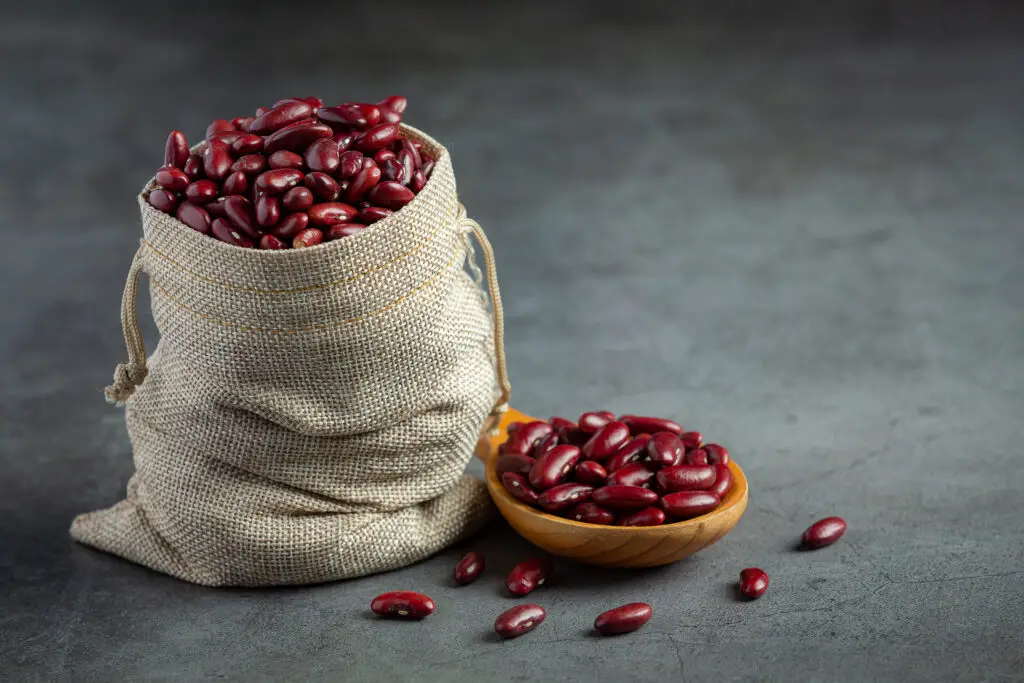How to avoid farting after eating beans?
How to avoid farting after eating beans?
Wondering how to enjoy those delicious beans without the embarrassing aftermath?
Ever found yourself in a room full of people after indulging in a hearty bean-filled meal, desperately trying to hold in that inevitable gas?
Fear not! We’ve got the ultimate guide to help you avoid the post-bean flatulence blues.
Here, how to make fart smell go away?
Why do beans give you gas?
Beans contain complex carbohydrates and fibers that the human digestive system struggles to break down completely.

When these indigestible components reach the large intestine, bacteria ferment them, producing gas as a byproduct.
The main culprit is oligosaccharides, specifically raffinose and stachyose, which the human body lacks the necessary enzymes to digest fully.
As a result, the fermentation process in the colon leads to the release of gases like methane, carbon dioxide, and hydrogen, causing bloating and flatulence. So, the gas production is a natural consequence of the incomplete digestion of certain compounds present in beans.
Here, how to fart for a long time?
Why should we try to include beans rather than avoiding them altogether?
Including beans in your diet offers numerous health benefits. Beans are rich in fiber, which aids digestion, promotes satiety, and helps manage weight.
They also provide a low-fat source of protein, essential for muscle health. The fiber content in beans contributes to stable blood sugar levels, reducing the risk of diabetes.
Additionally, beans contain vitamins, minerals, and antioxidants that support overall well-being and may lower the risk of chronic diseases.
While they can cause gas, gradual inclusion and proper cooking methods can mitigate this issue.
Overall, incorporating beans into your diet enhances nutrition, supports weight management, and promotes long-term health.
Here, how to fart in public without being noticed?
How to avoid farting after eating beans?
To minimize flatulence after consuming beans, employ several strategies. Firstly, soak dried beans before cooking to reduce oligosaccharides, the gas-producing compounds.
Rinse canned beans thoroughly. Gradually increase bean intake to allow your digestive system to adapt. Enzyme supplements like Beano may help break down complex carbohydrates.
Cooking beans with digestive-friendly herbs like cumin or fennel can also aid digestion.
Drinking plenty of water helps fiber move smoothly through the digestive tract.
Lastly, consider incorporating fermented foods like yogurt, which contain probiotics that support gut health and may reduce gas. Experiment with these methods to find what works best for you.
Here, how to prevent a bad fart smell?
12 ways to avoid farting after eating beans
Certainly! While it might be challenging to cover all 12 ways within a 200-word limit for each, I’ll provide concise explanations for each method:
1. Soaking and Rinsing:
Soak dried beans before cooking to reduce oligosaccharides, responsible for gas. Rinse canned beans thoroughly to minimize their content.

2. Gradual Increase in Consumption:
Gradually introduce beans into your diet. This gives your digestive system time to adapt to the complex carbohydrates found in beans, reducing the likelihood of excessive gas.
3. Enzyme Supplements (e.g., Beano):
Take enzyme supplements like Beano before consuming beans. These supplements contain enzymes that help break down complex carbohydrates, reducing the gas-producing effects.
4. Cooking with Digestive-Friendly Herbs:
Use digestive-friendly herbs like cumin or fennel while cooking beans. These herbs can help ease the digestion process and minimize gas production.
Here, how to preent farting too much?
5. Proper Cooking Techniques:
Cook beans thoroughly. Proper cooking breaks down complex carbohydrates, making them easier to digest and reducing the likelihood of excessive gas.
6. Drinking Plenty of Water:
Stay well-hydrated by drinking plenty of water. Water helps move fiber smoothly through the digestive tract, preventing bloating and discomfort.
7. Combining Beans with Whole Grains:
Pair beans with whole grains like brown rice. This combination provides a balanced source of nutrients and may help reduce the impact on digestion.
8. Utilizing Fermented Foods:
Incorporate fermented foods like yogurt into your diet. These foods contain probiotics that support gut health, potentially reducing gas production.
9. Choosing Low-Fiber Beans:
Opt for low-fiber bean varieties, such as lentils, which can be gentler on the digestive system.
10. Avoiding Gas-Inducing Vegetables:
Minimize intake of gas-inducing vegetables like broccoli and cabbage, which, when combined with beans, can contribute to increased gas.

11. Chewing Thoroughly:
Chew beans thoroughly to aid in the mechanical breakdown of food before it reaches the digestive system, potentially reducing gas production.
12. Experimenting with Different Bean Types:
Experiment with various types of beans. Some individuals may find certain varieties cause less gas than others, so find what works best for you through trial and error.
Related faq’s
How do you stop beans from giving you gas?
To minimize gas from beans, soak them in water for at least 4 hours before cooking to reduce oligosaccharides. Rinse them thoroughly, and discard the soaking water.
Cook beans with fresh water, bringing them to a boil and then simmering until tender. Adding a piece of kombu seaweed while cooking can also help.
Gradually introduce beans into your diet to allow your digestive system to adjust, and consider using digestive aids like Beano.
Is it normal to fart a lot after eating beans?
Yes, increased flatulence after eating beans is normal. Beans contain oligosaccharides, complex sugars that the body struggles to break down fully.
As these sugars reach the colon, bacteria ferment them, producing gas.
To minimize this, soak beans before cooking, rinse them thoroughly, and gradually incorporate them into your diet to allow your digestive system to adapt.
Using digestive aids like Beano may also help reduce gas production.
How can I reduce my fart?
To reduce flatulence, consider these tips: Chew food thoroughly to aid digestion, avoid gulping air while eating, and consume smaller, more frequent meals.
Identify and limit intake of gas-producing foods like beans, broccoli, and carbonated drinks.
Gradually introduce high-fiber foods to allow your digestive system to adapt.
Stay hydrated, exercise regularly, and consider over-the-counter remedies like simethicone. If excessive gas persists, consult a healthcare professional to rule out underlying digestive issues.
How can I digest beans better?
Improve bean digestion by soaking them for at least 4 hours, discarding the soaking water, and rinsing them thoroughly.
Cook beans with fresh water, bringing them to a boil and then simmering until tender. Add kombu seaweed during cooking to aid digestion.
Gradually introduce beans into your diet to allow your digestive system to adjust. Stay hydrated, chew thoroughly, and consider using digestive aids like Beano. Regular exercise can also promote overall digestive health and ease the digestion of beans.
Conclusion:
In Conclusion to minimize post-bean meal flatulence, consider soaking dried beans before cooking to reduce indigestible sugars.
Gradually introduce beans into your diet to allow your digestive system to adapt. Incorporate digestive aids like ginger or cumin.
Experiment with different bean varieties to find ones that are gentler on your digestive system.



